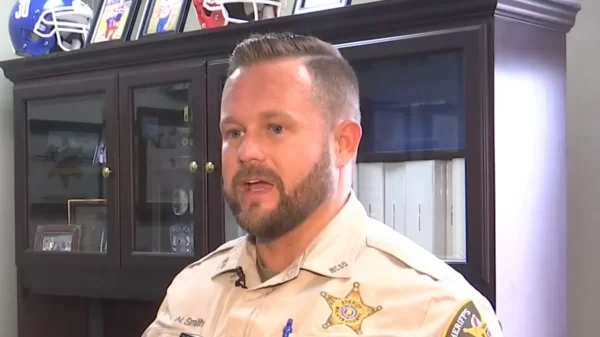Rep. Leigh Hulsey, R-Helena, choked back tears as she asked the Alabama House of Representatives Thursday for final passage of HB356, which would institute training for law enforcement for how to appropriately respond to people with disabilities.
Hulsey stood at the well for two-and-a-half hours explaining the bill, not because of opposition—the bill sailed through on a unanimous 105-0 vote and had nearly 95 cosponsors—but due to the ongoing filibuster by Democrats relating to a bill criminalizing absentee ballot assistance.
The bill is named the “Noah Cade Act” after Hulsey’s son, who is on the autism spectrum.
The bill would require law enforcement hours to take one hour of continuing education on how to interact with individuals with sensory issues or invisible disabilities every other year. The class would be administrated by the Alabama Peace Officers’ Standards and Training Commission and the class would be provided by a nonprofit that specializes in such training, at no cost.
Hulsey brought similar legislation when she served on the Helena City Council and said that has been a vehicle for change.
Rep. Chris England, D-Tuscaloosa, said the law is necessary in part because Alabama under then-governor Robert Bentley shut down mental health institutions and now people from suffering mental health crises are often left to deal with law enforcement, and prison or jail is the only institution that can house them.
Some of the disorders that fall under the sensory issues or invisible disabilities include stroke, diabetes, autism spectrum disorder and dementia, as well as other neurological disorders.
Hulsey said drivers licenses do not currently indicate to officers that they have one of these disabilities, but said she believes another member of the House is working on such legislation.
Hulsey partnered with nonprofit KultureCity, who provides such law enforcement training, to create a distinctive license plate that can now be purchased in Alabama to signal to law enforcement that the driver or occupant of the vehicle has an invisible disability.






















































